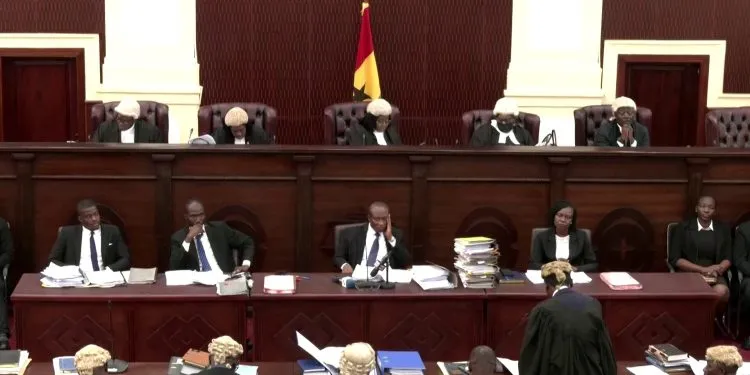Supreme Court Rules Against Speaker Alban Bagbin on Parliamentary Seats
Supreme Court Rules Against Speaker Alban Bagbin on Parliamentary Seats

- The Supreme Court has overturned Speaker of Parliament Alban Bagbin’s decision to declare four parliamentary seats vacant
- Previously, the Supreme Court issued an interim injunction to halt the implementation of the Speaker's ruling
- This case highlights significant issues regarding the separation of powers
The Supreme Court has overturned Speaker of Parliament Alban Bagbin’s decision to declare four parliamentary seats vacant, siding with a challenge from Majority Leader Alexander Afenyo-Markin.
In a ruling delivered on Tuesday by a seven-member panel led by Chief Justice Gertrude Torkornoo, the court reached a 5-2 majority decision in favor of Afenyo-Markin.
Chief Justice Torkornoo indicated that a detailed explanation of the ruling will be provided at a later date.
The dispute centers on Speaker Bagbin’s interpretation of Article 97(1)(g) of the Ghanaian Constitution, which he cited as the basis for his declaration.
This action faced legal and political opposition, with Afenyo-Markin arguing that Bagbin had overstepped his authority by bypassing judicial review and effectively denying the opportunity for by-elections in the affected constituencies.
Previously, the Supreme Court issued an interim injunction to halt the implementation of the Speaker’s ruling. In response, Bagbin filed a counter-application, asserting that parliamentary decisions fall outside the judiciary’s jurisdiction as they pertain to non-judicial matters.
Bagbin’s counsel, Thaddeus Sory, argued that judicial intervention in parliamentary affairs violates the constitutional principle of separation of powers.
However, Chief Justice Torkornoo rejected Bagbin’s application, affirming the court’s authority to intervene when parliamentary actions are suspected of breaching constitutional provisions.
She expressed concern over the potential disenfranchisement of constituents who could lose their parliamentary representation without the option of by-elections, particularly with the general elections approaching on December 7.
The Chief Justice directed both parties to submit their statements of claim within seven days to facilitate a swift resolution.
This case highlights significant issues regarding the separation of powers and the constitutional limits of parliamentary authority, emphasizing the judiciary’s role in upholding constitutional principles while managing tensions with parliamentary autonomy.





